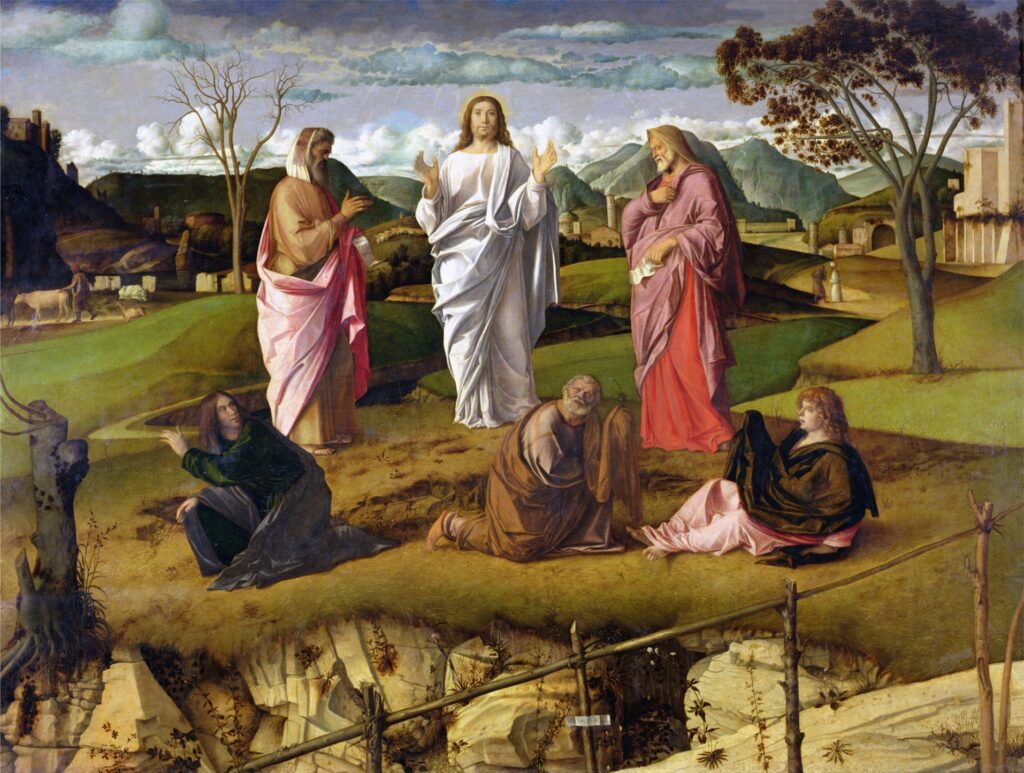
Here is how the Catechism of the Catholic Church sums up the great mystery of Jesus being True God and True Man:
IN BRIEF
479 At the time appointed by God, the only Son of the Father, the eternal Word, that is, the Word and substantial Image of the Father, became incarnate; without losing his divine nature he has assumed human nature.
480 Jesus Christ is true God and true man, in the unity of his divine person; for this reason he is the one and only mediator between God and men.
481 Jesus Christ possesses two natures, one divine and the other human, not confused, but united in the one person of God’s Son.
482 Christ, being true God and true man, has a human intellect and will, perfectly attuned and subject to his divine intellect and divine will, which he has in common with the Father and the Holy Spirit.
483 The Incarnation is therefore the mystery of the wonderful union of the divine and human natures in the one person of the Word. (from CCC, Part 1, Section 2, Chapter 2, Article 3, Paragraph 1)
This mystery has challenged the imagination and faith of humankind at least since the Resurrection, and probably before that, even as the Apostles sensed the presence of the divine within Jesus. The full meaning of Jesus as True God and True Man, its significance to us, and how it worked, will probably never be understood this side of Heaven.
Non-believers and even many believers doubt this Article of Faith. Although I can’t explain it, I can easily believe it. The evidence of two-natures-in-one is literally all around us, every one of us. We experience this evidence every day, probably scores of times every day, in the fullest and deepest way. As St. Paul describes it:
“My own actions bewilder me; what I do is not what I wish to do, but something which I hate. Why then, if what I do is something I have no wish to do, I thereby admit that the law is worthy of all honour; meanwhile, my action does not come from me, but from the sinful principle that dwells in me. Of this I am certain, that no principle of good dwells in me, that is, in my natural self; praiseworthy intentions are always ready to hand, but I cannot find my way to the performance of them; it is not the good my will prefers, but the evil my will disapproves, that I find myself doing. And if what I do is something I have not the will to do, it cannot be I that bring it about, it must be the sinful principle that dwells in me. This, then, is what I find about the law, that evil is close at my side, when my will is to do what is praiseworthy. Inwardly, I applaud God’s disposition, but I observe another disposition in my lower self, which raises war against the disposition of my conscience, and so I am handed over as a captive to that disposition towards sin which my lower self contains.” (Romans 7:15-23)
Yes, as Paul so honestly and clearly expresses, we all have two natures battling within us, our high impulse to be holy fighting our persistent itch to satisfy worldly desires. Should I be honest and be punished, or lie and escape punishment? Should I mock my neighbor and get a laugh, or help my neighbor and lighten his burden? Should I hurt my enemy and feel the pleasure of revenge, or forgive my enemy and feel the pleasure of charity?
These questions never end. And, as Paul so painfully observes, we often wish to do good but can’t seem to help ourselves from doing bad.
It’s as if we have two natures in one. As I see it, we have a nature calling us to the divine, implanted in us by God, a nature the saints bring to near perfection. And, we have a human nature than is both good and bad, having been corrupted somehow by Original Sin. In this respect of having two natures, then, we are all like Jesus, but in His case both His divine and human natures are perfect because He is free of sin. I imagine Adam and Eve were very much like Jesus before The Fall, uncorrupted by Original Sin. Had humankind not fallen, we would all be fully good images of God. Imagine what the world would look like then.
Saints are saints because they are fully dependent on God and fully independent of the world. Dependence on God brings us to the full flowering of our divine self; full dependence on the world leads to … well, imagine someone with no sense of right or wrong, no concern beyond his own ego, someone completely willing to do anything it takes to scratch any worldly itch that comes along.
To the extent we, as individuals or as a society, turn away from God, we become like that imaginary someone.
Reflection
How are my two natures “getting along?” Which nature is calling the shots? Who is in control — God in me — or me, a man of the world?
Worth Reading
CCC, Part 1, Section 2, Chapter 2, Article 3, Paragraph 1
The Twelve Articles of Catholic Faith
